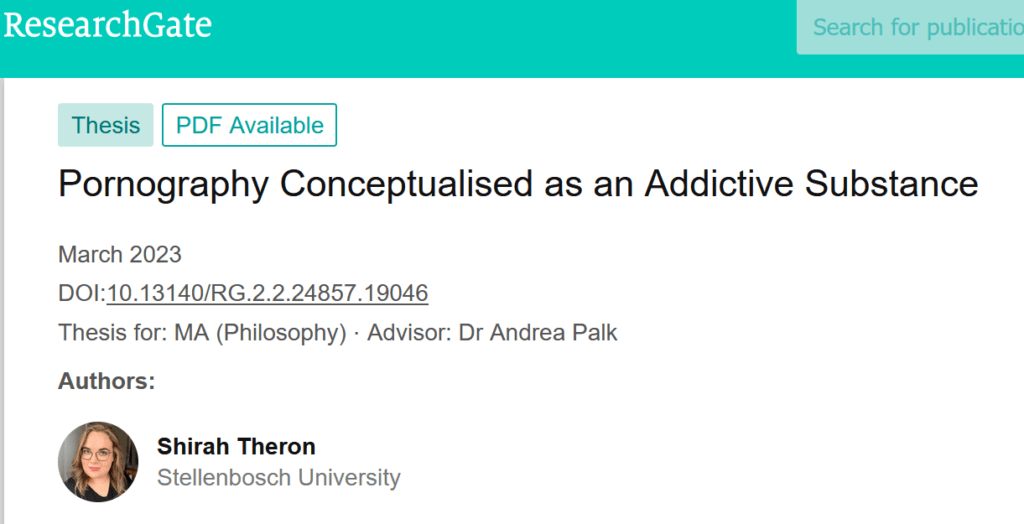Masters thesis by Shirah Theron on ResearchGate
Stellenbosch University, 2023
Abstract
Since the dawn of the internet, pornography has effectively become ubiquitous, pervasive, and increasingly normalised. Study findings show remarkable similarities in how the brain reacts to pornography, and other known addictive substances, and indicate that consuming pornography is comparable to consuming other known addictive substances. Moreover, two of the biggest risk factors for addiction are the substance’s availability and its easy accessibility, particularly in the case of younger persons. To date, pornography addiction has been conceptualised as a behavioural addiction. However, the body of research data on pornography addiction does not provide conclusive support for behavioural addiction. The aim of this thesis is to put forward the idea that pornography can, and should, be conceptualised as an addictive substance, and, that when pornography is consumed, an addictive substance is consumed. In order to support this claim, there are many factors that must be addressed. I first clarify what pornography entails by exploring how it is conceptualised, what pornography ‘does’, and what it means to be a pornography consumer. Secondly, I examine the conceptualisations of substances, substance consumption and addiction, respectively, as well as the subsequent difference between substance and behavioural addiction. Thirdly, I give an inclusive overview of pornography addiction by not only examining the most recent perspectives of researchers, but also of pornography consumers. I conclude by suggesting how we should go about
conceptualising pornography addiction, and then propose how the set of diagnostic criteria for
pornography use disorder should be formulated for a future iteration of the American Psychiatric Association’s Diagnostic and Statistical Manual of Mental Disorders. I argue that, given the abundance of academic research on substance addiction, compared to the scarcity of research on behavioural addiction, conceptualising pornography as an addictive substance is more likely to create a sense of urgency for the future research of pornography addiction than would be the case if it is considered a potential behavioural addiction. Furthermore, I argue that the classification of pornography as an addictive substance, and the inclusion of pornography use disorder in a future iteration of the DSM, will raise awareness of the potential adverse effects of pornography consumption and, therefore, the harmful consequences of pornography use disorder. (emphasis supplied)
